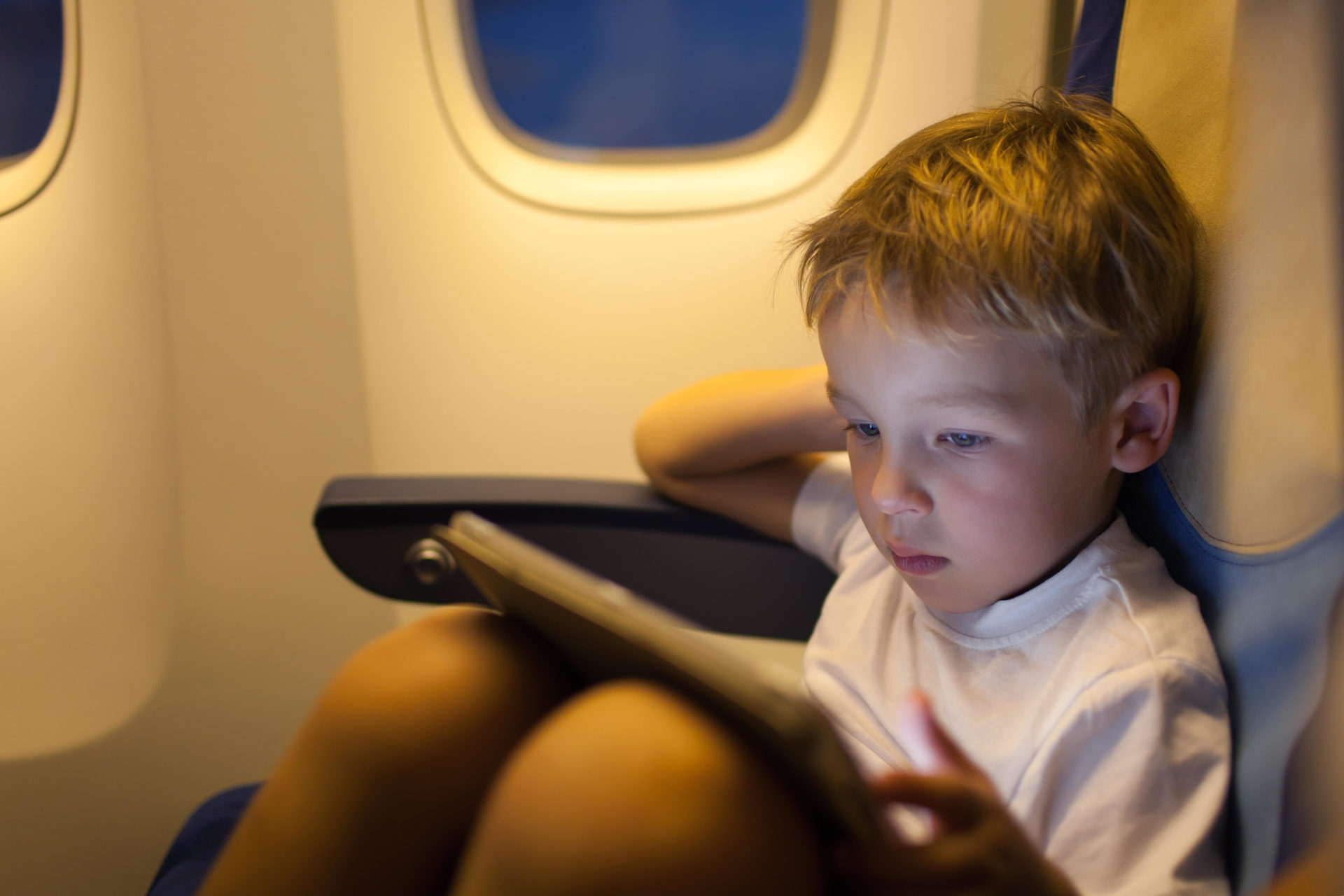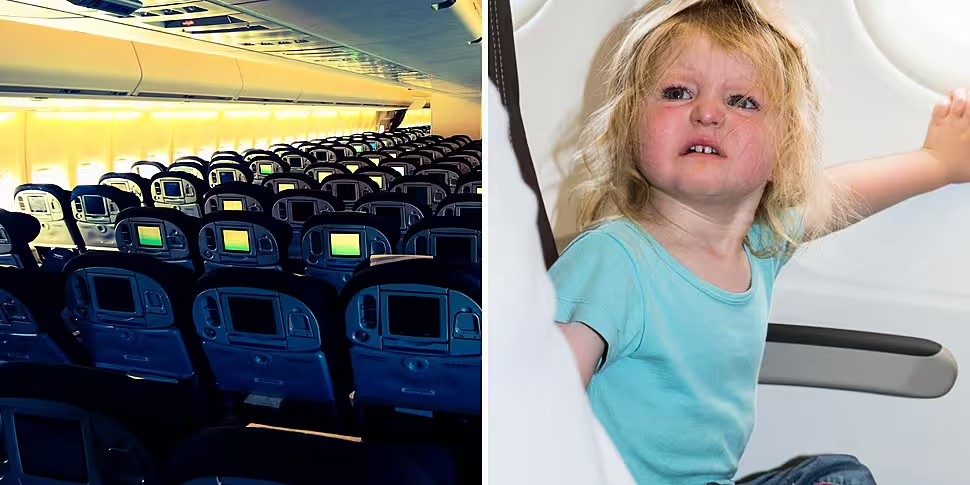Screaming and crying children on planes could be a thing of the past thanks to a new mathematical formula.
The formula provides a method to calculate the amount of time until a tantrum (T) is expected to occur during a flight to delay it, so it doesn't happen mid-air.
According to parents, the most common triggers of a tantrum are sleepiness, boredom, hunger and noise.
 The tantrum-free formula for parents
The tantrum-free formula for parentsEach has been scored from zero to 10, with zero meaning the issue is being ignored and 10 meaning the issue is being managed successfully.
Dr Tom Crawford of Oxford University explains how it all works.
"If all four of the main causes of a tantrum are addressed, meaning they score 10, the average time until a tantrum occurs on a flight can be increased to 129 minutes, which is almost five-times more than the expected time until a tantrum without any intervention," he said.
 A boy sitting in a plane and using a tablet PC. Image: Danil Roudenko / Alamy Stock Photo
A boy sitting in a plane and using a tablet PC. Image: Danil Roudenko / Alamy Stock Photo"This means parents will have a tantrum-free journey for flights under 129 minutes, which covers many short-haul flights to Europe.
"To score 10 and effectively address the four main tantrum triggers, parents need to ensure children are taking a nap for 37 minutes to conquer sleepiness and will need to prevent boredom by either drawing, watching movies or giving their child a tablet or phone, which is reported to entertain them for 31 minutes," Dr Crawford added.
Parents will need to set aside 19 minutes to snack to prevent hunger, and finally prevent noise through music or reading that is reported to preoccupy kids for 14 minutes.
New research by Asda Money in the UK revealed children are most likely to have a tantrum 27 minutes and 48 seconds into a flight, with each tantrum lasting an average of 15 minutes and six seconds.
How do you stop kids throwing a tantrum on a plane? Join us at Cork Airport next. @SeanMoncrieff @NewstalkFM @CorkAirport pic.twitter.com/GfA74ri5dw
— Henry McKean (@HenryMcKean) October 24, 2023
Henry McKean was at Cork Airport earlier for Moncrieff to see how parents of young children cope.
Lisa from Midleton said it can be very stressful.
"I have a four-year-old myself and it is very stressful," she said.
"You don't want to make people feel uncomfortable around you, and you don't want the kids to be uncomfortable either.
"I think it's kids being kids.
"You try to be as prepared as possible; have colouring books, have some toys, have some snacks.
"It is a different environment for them, and with ears popping, it's hard for them to be able express that to us.
"But you just do your best."
'The only way I survive'
Janice arrived in Cork after flying all the way from Melbourne, Australia.
"It's been a long one, we stopped off in Singapore on the way over," she said.
"I come home every year, it's the only way I survive - but travelling with kids it's a hard slog.
"I'd a two-year-old, an eight-year-old and a seven-year-old today with my best friend Stacey.
"It's her first time home in 12 years, so this is a big celebration for her."
Janice said the flight went quite well.
"We actually had a pretty quiet flight; usually there's lots of babies and stuff, but not this time," she said.
"My eight-year-old was excellent, my two-year-old no so much; he was a bit of a rogue to be honest," she added.
'My sympathies lie with parents'
Another woman at Cork Airport, who described herself as a "child-free person", said she has sympathy for parents.
"Kids crying on plane can be quite challenging," she said.
"But I think for me... my sympathies lie mainly with the parents.
"You can't control children crying, children will cry and airplanes can be quite a stressful travel experience for kids.
"If I sit next to a kid, a kids job is to cry - that's what they do.
"But if I'm sitting next to boozed up or noisy people, that's more stressful than sitting next to [a baby]," she added.
One European airline recently announced child-free zones that will be accessible to passengers over the age of 16.
Listen back here:









